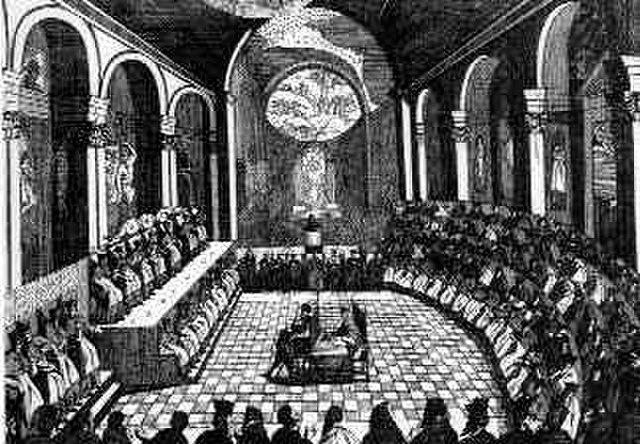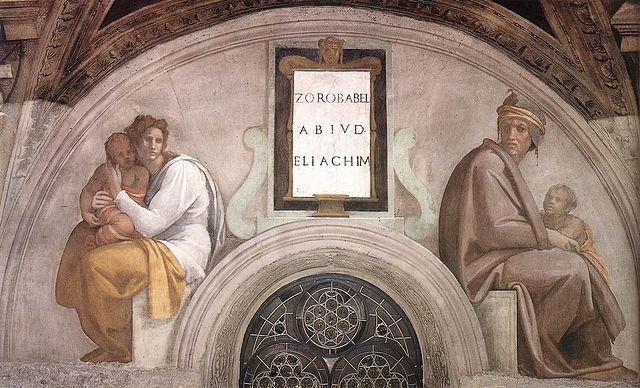The pope, also known as the supreme pontiff, Roman pontiff or sovereign pontiff, is the bishop of Rome, visible head of the worldwide Catholic Church, and has also served as the head of state or sovereign of the Papal States and later the Vatican City State since the eighth century. From a Catholic viewpoint, the primacy of the bishop of Rome is largely derived from his role as the apostolic successor to Saint Peter, to whom primacy was conferred by Jesus, who gave Peter the Keys of Heaven and the powers of "binding and loosing", naming him as the "rock" upon which the Church would be built. The current pope is Francis, who was elected on 13 March 2013.
Pope Francis in 2021
Gregory the Great (c. 540–604), in a painting by Carlo Saraceni, c. 1610, Rome.
As part of the Catholic Reformation, Pope Paul III (1534–1549) initiated the Council of Trent (1545–1563), which established the triumph of the papacy over those who sought to reconcile with Protestants or oppose papal claims.
A fresco of Eliakim in Sistine Chapel, Vatican City
The Catholic Church, also known as the Roman Catholic Church, is the largest Christian church, with 1.39 billion baptized Catholics worldwide as of 2022. It is among the world's oldest and largest international institutions, and has played a prominent role in the history and development of Western civilization. The church consists of 24 sui iuris churches, including the Latin Church and 23 Eastern Catholic Churches, which comprise almost 3,500 dioceses and eparchies located around the world. The pope, who is the bishop of Rome, is the chief pastor of the church. The Diocese of Rome, known as the Holy See, is the central governing authority of the church. The administrative body of the Holy See, the Roman Curia, has its principal offices in Vatican City, a small independent city-state and enclave within the Italian capital city of Rome, of which the pope is head of state.
St. Peter's Basilica in Vatican City, the largest Catholic church building in the world
The first use of the term "Catholic Church", meaning "universal church", was by the church father Saint Ignatius of Antioch in his Letter to the Smyrnaeans in c. 110 AD. Ignatius of Antioch also is credited with the first recorded use of the term Christianity ten years earlier, in c. 100 AD. He died in Rome, with his relics located in San Clemente al Laterano.
A c. 1481–1482 fresco by Pietro Perugino in the Sistine Chapel showing Jesus giving the keys of heaven to Saint Peter
The Last Supper, a late 1490s mural painting by Leonardo da Vinci, depicting the last supper of Jesus and his twelve apostles on the eve of his crucifixion. Most of Jesus' apostles are buried in Rome, including Saint Peter.








